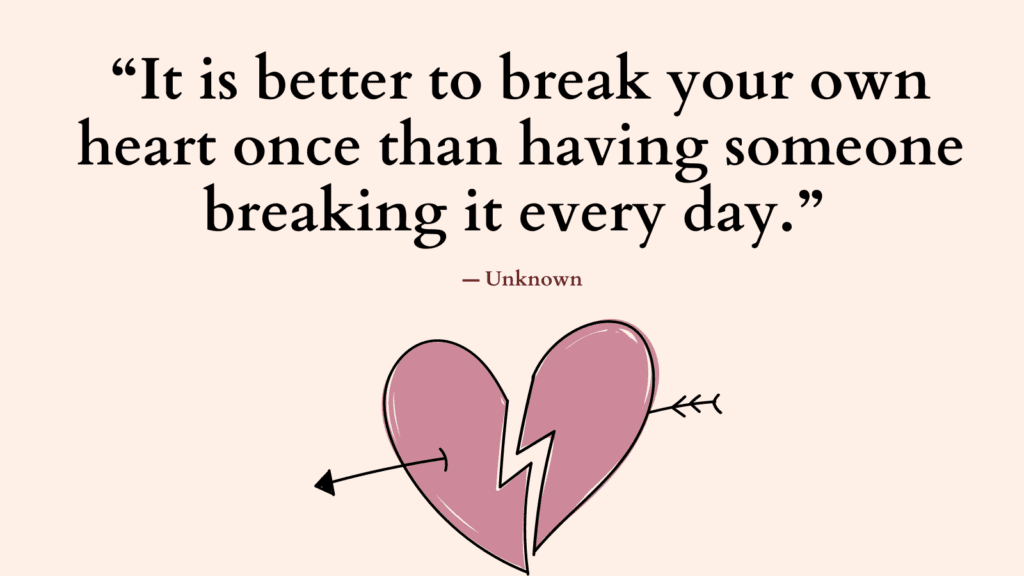In this post, you’re going to learn all about healing from betrayal trauma.
What Is Betrayal Trauma?
Betrayal trauma is a specific form of psychological trauma that stems from the violation of trust and betrayal by someone close to the individual, particularly in the context of a close relationship.
This type of trauma can occur in various interpersonal relationships, including romantic partnerships, close friendships, family connections, and professional associations.
The experience of betrayal trauma can be profoundly distressing and may lead to a range of emotional, cognitive, and behavioral responses.
Related: Betrayal Blindness – What Is It & How To Overcome It?
Do I have Betrayal Trauma?
When someone experiences betrayal trauma, they may exhibit various signs and symptoms.
It’s essential to remember that these signs can vary from person to person.
Here are some common signs and reactions associated with betrayal trauma:
1. Intense Emotional Responses: Individuals may experience intense emotions such as shock, disbelief, anger, sadness, fear, or a sense of betrayal. These emotions can be overwhelming and unpredictable.
2. Trust Issues: Trust can be significantly impacted after experiencing betrayal trauma. Individuals may find it challenging to trust others, even in new or unrelated relationships. Trusting oneself and one’s judgment may also become difficult.
3. Hyperarousal or Hypervigilance: Following betrayal trauma, individuals may become hyperalert to cues of potential betrayal or danger. This heightened state of arousal may lead to constant worry, anxiety, or difficulty relaxing.
4. Disturbed Sleep Patterns: People who have experienced betrayal trauma may struggle with sleep disturbances, including insomnia, nightmares, or night sweats. These disruptions can further contribute to emotional distress and fatigue.
5. Intrusive Thoughts or Memories: Intrusive thoughts, memories, or flashbacks related to the traumatic event may occur, causing distress and disruptions in daily life. Reminders or triggers can bring back vivid recall of the betrayal.
6. Social Withdrawal or Isolation: Some individuals may feel a strong urge to withdraw from social interactions and isolate themselves due to the fear of being betrayed again or a loss of trust in others.
7. Changes in Self-Identity: Betrayal trauma can shake one’s perception of self and identity. Individuals may question their worth, competence, or value in relationships, leading to feelings of low self-esteem or self-doubt.
8. Difficulty Forming New Relationships: The experience of betrayal can make it challenging to engage in new relationships, fearing a repeat of the past hurt. It can take time and effort to regain confidence and open up to new connections.
9. Physical Symptoms: Betrayal trauma can manifest physically, with symptoms such as headaches, digestive issues, changes in appetite, muscle tension, or fatigue.
These signs and symptoms are not exhaustive, and individuals may experience a combination of them or exhibit different reactions altogether.
Related: Betrayal Trauma Test: Do I Have Betrayal Trauma?
Top 10 Tips on Healing From Betrayal Trauma
Healing from betrayal trauma can be a complex and challenging process, but with time, support, and self-care, individuals can embark on a journey towards recovery and resilience.
Here are some tips that have been found to be helpful in the healing process:
1. Acknowledge and Validate Your Feelings:
It’s vital to acknowledge and validate the range of emotions you may be experiencing, including anger, sadness, confusion, or fear.
Allow yourself to feel these emotions without judgment, recognizing that they are valid responses to the trauma you have endured.
2. Engage in Self-Care Practices:
Prioritize self-care activities that promote physical, emotional, and mental well-being.
This may include regular exercise, mindfulness or meditation practices, adequate sleep, healthy nutrition, and engaging in hobbies or activities that bring you joy and comfort.
3. Establish Boundaries:
Setting and enforcing boundaries is crucial in the healing process.
Clearly communicate your needs and limits to others, and take steps to protect yourself from further harm.
This may involve distancing yourself from the source of betrayal or establishing boundaries in new relationships.
Related: 7 Stages Of Betrayal Trauma (+7 Tips On How To Find Peace After Betrayal)
4. Practice Mindfulness and Grounding Techniques:
Mindfulness and grounding exercises can help regulate emotions and alleviate anxiety.
Techniques such as deep breathing, progressive muscle relaxation, and grounding exercises can anchor you in the present moment and provide a sense of stability during times of distress.
5. Educate Yourself About Betrayal Trauma:
Understanding the psychological and emotional impact of betrayal trauma can be empowering.
Educating yourself about the nature of trauma, common reactions, and the healing process can provide insight and perspective as you navigate your own recovery.
6. Connect with Supportive Individuals:
Seek out understanding and supportive individuals, such as friends, family members, or support groups, who can offer empathy, validation, and companionship during your healing journey.
Building a support network can provide a sense of belonging and reduce feelings of isolation.
Related: How to Break the Cycle of Trauma Reenactment?
7. Explore Expressive Arts or Journaling:
Engaging in creative outlets such as art, music, or writing can offer a means of self-expression and emotional release.
Journaling thoughts and feelings can also provide a therapeutic outlet for processing the impact of betrayal trauma.
8. Foster Self-Compassion:
Be kind and compassionate toward yourself as you navigate the healing process.
Self-compassion involves treating yourself with the same kindness and understanding that you would offer to a friend facing similar challenges.
9. Gradually Rebuild Trust:
Rebuilding trust, both in oneself and in others, is a gradual and delicate process.
Take small steps to engage in relationships and activities that feel safe, and allow trust to develop naturally over time.
Related: Top 10 Complex PTSD Triggers In Relationships
10. Address Emotional Triggers:
Identify and address emotional triggers that may intensify feelings of distress or anxiety.
By recognizing these triggers, you can develop strategies to manage and reduce their impact on your well-being.
11. Cultivate Resilience and Empowerment:
Focus on developing resilience and empowerment in the aftermath of betrayal trauma. This may involve identifying personal strengths, fostering a sense of agency and autonomy, and setting realistic goals for your recovery.
12. Practice Patience and Self-Reflection:
Healing from betrayal trauma is a process that unfolds at its own pace.
Be patient with yourself and engage in self-reflection to gain insight into your emotions, behaviors, and growth throughout the healing journey.
Related: Top 10 Signs You’re Healing From Narcissistic Abuse

Conclusion
Healing from betrayal trauma is a deeply personal and individualized process.
Each person’s journey toward recovery is unique, and it’s essential to approach healing with self-compassion, patience, and a willingness to seek support when needed.
If you find that the impact of betrayal trauma significantly interferes with your daily functioning or well-being, consider seeking professional help to address your concerns and work toward healing and growth.



